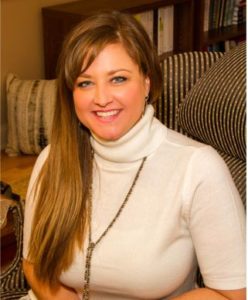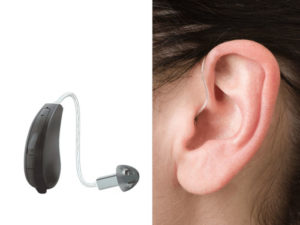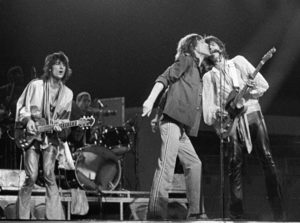By: Robert Avsec, Executive Fire Officer
Post Update 2/14/2019: I’ve now had my hearing aids for almost four months and WOW what a difference! I’ve almost completely stopped asking Mrs. Avsec to look at me when she says something to me. Why is that significant? Because one of our first compensatory mechanisms when we start losing high frequency sounds is to start “reading lips” to get the complete message. I know also hear just about everything (Hey, it’s still only been 3+ months!) that Mrs. Avsec says to me when we are in different rooms of the house (Another sign that I’m hearing sounds that I wasn’t hearing before because I don’t have to see the speaker).
I encourage you to read on if you’ve not seen the original blog from back in October 2018.
Nothing says your 61st birthday is less than two weeks away then going to get your annual hearing test staten island and having your hearing specialist tell you, “You have some significant hearing loss for high frequencies, but we can treat it.”
Treat it? What does that mean?
Fortunately, my Beltone hearing specialist, Sara Swann, is not only a great technician, she’s also a highly skilled “explainer” who in a

Sara Swann, Licensed Hearing Care Specialist
matter of minutes calmly explained what I had and how it wasn’t as bad as it sounded.
My hearing loss is for certain sounds in the high frequency range of speech; for me those sounds are predominantly th, s, f, and ch. Who knew that the sounds for different letters and letter combinations come out of our mouths at different frequencies? Did you?
The speech tests
Now to better confirm how much this was affecting my ability to hear what others were saying (Which is what hearing is all about, right? Comprehension?), Sara next administered a speech test for which she employed a “friendly voice”, that is, someone who I hear speaking to me all the time. And for this we chose Mrs. Avsec (The lady who says I never hear a word she says. What could possibly go wrong?).
With my back turned to her, Mrs. A read a list of 25 words that contained (Unbeknownst to me) those letter sounds that I wasn’t hearing. As she read each word, I responded back with the word I thought I heard. Drum roll please! I got 24 out of 25 correct (Yeah, me!).
Then Sara administered a second set of 25 words, this time using a recorded male voice with a level of background noise you might experience in a moderately busy restaurant as you were having a conversation with someone across from you at your table. Another difference was that each of the 25 words I was listening for were not stand-alone words, they were at the end of a complete sentence.
For that one I missed 5 out of the 25 words.
Own it and treat it
The other thing I like about Sara is that she doesn’t tell you that you must do this or that. She clearly explains the options so that you can make an intelligent decision. But on this point, she was abundantly clear, “I tell all my patients that with hearing loss for high frequency sounds, we can successfully treat that because everyone eventually begins losing those sounds. But once they lose those lower frequency sounds, I tell them I can’t do anything for them. They’ve got to go someplace else.”
So, what’s my treatment? Some really high-tech (And high priced) hearing aids. Rechargeable (Never need to find hearing aid batteries on a Saturday night!) low profile, Bluetooth enabled (I’ll be able to ditch the wireless headsets I own and use the phone or listen to music using my hearing aids!), and reprogrammable (As my hearing needs change, Sara can update my hearing aids remotely or in her office). I don’t have them yet, but I’m super excited to find out how much they improve my hearing.
on a Saturday night!) low profile, Bluetooth enabled (I’ll be able to ditch the wireless headsets I own and use the phone or listen to music using my hearing aids!), and reprogrammable (As my hearing needs change, Sara can update my hearing aids remotely or in her office). I don’t have them yet, but I’m super excited to find out how much they improve my hearing.
Protect your ears—you only have two
A couple of years ago, I wrote a piece for FireRescue1.com entitled, How to protect firefighter hearing. The subtitle was: Even seemingly low-level noise over time can damage hearing and lead to additional health risks. I strongly advise you to check it out.
See, I consider myself an “early adopter” when it came to protecting my hearing as a firefighter. Three years into my career I purchased a set of earmuff-style hearing protectors and diligently used them whenever possible, especially when driving or riding fire apparatus (And later my battalion chief’s vehicle). I always had a couple of pairs of disposable foam earplugs in my uniform pocket and turnout gear coat pocket so that I could “plug in” anywhere.

Some of mine were those arena-rock concerts in the late 1970’s and early 1980’s. Rolling Stone, Philadelphia, 1976!
So, my hearing loss is probably less about exposure than it is old age creeping up on me. But I’m not minimizing loss from exposure because I had plenty of that before I became a firefighter, just like you probably did (See photo to the right!).
My advice? Get a baseline hearing test from a licensed professional like Sara Swann, and then continue to get a hearing test annually. Hearing loss is like vision loss—it happens in such small increments that we don’t notice it until it gets really bad.
And wear hearing protection as much as possible. Have it with you at all times so that you never get caught short.
 Fire & EMS Leader Pro The job of old firefighters is to teach young firefighters how to become old firefighters!
Fire & EMS Leader Pro The job of old firefighters is to teach young firefighters how to become old firefighters!